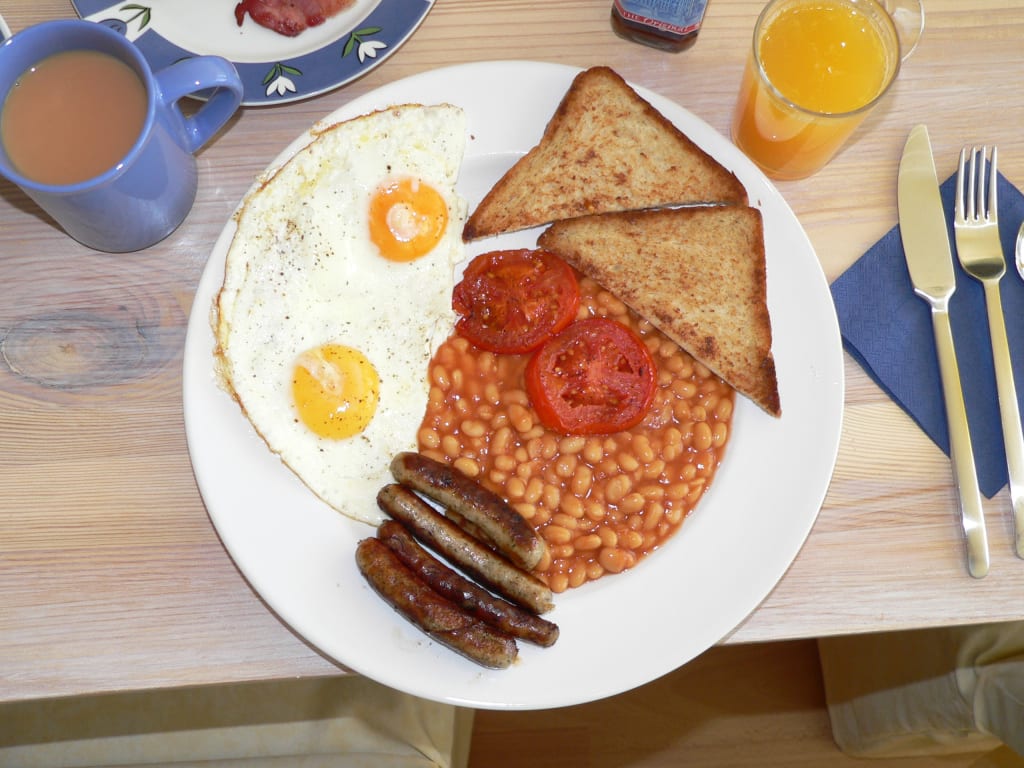How to Increase Productivity and Lose Weight
With Daily Intermittent Fasting

Eating several meals a day is not good for us. For the majority of human history, humans would not eat until they had gathered, hunted, of farmed food to nourish themselves. Therefore, fasting is a natural human state. In today’s world, we have access to food all the time, and we learn that breakfast is the “most important meal of the day.” This is the entire reason breakfast food exists. Also, if you think about it, most breakfasts foods like pancakes, sugary cereal, or bacon are not that healthy for you.
So, fasting is a natural state, but what happens when we fast? Our mind becomes sharp and focused, and we burn fat. Because your body is in need of nourishment, “I need food to survive,” the brain kicks into a Sympathetic Nervous System mode which increases focus and alertness. The fast also increases cellular repair. Thus, fasting in the morning will wake you up, and boosts productivity (perfect time to get work done). Also when fasting, you body’s growth hormone levels rise while insulin levels decrease. All of this is prime conditioning for fat burning.
How should we break our fast? When you wake up, go 4-6 hours a day with no food. Drink water and stay hydrated. Black coffee with no sugar or cream can help curb your appetite. After 6 hours of not eating and a presumed 8 hours of sleep, your body is fasting and burning fat for 12-14 hours. When was the last time you didn’t eat for that long? Once you do eat your first meal it will be a big, nutritious, delicious meal that will fill you up and kick your brain into Parasympathetic Nervous System mode which makes the body feel tired and sleepy. Several hours later, Eat another meal for dinner, and maybe a small snack before bed if still hungry. So how would this look? Take me for example. My body needs around 2000 calories per day. Cut that down to 1800 to be in a small and healthy calorie deficit and this is what my daily schedule would look like.
- 8 am: Wake up
- 12-2pm: Eat first big meal (800-1000 calories)
- 6-8pm: Eat second big meal (700-900 calories)
- 10-11pm: Small snack (100 calories)
- 12am: Bed
Okay, this is very flexible. You could eat two equally sized meals, or one really big one and one small one. You could eat your small snack between meals. Adjust it to meet your lifestyle and that can change daily. The important factor is to fast for 4-6 hours every day. You’d be surprised how hard it is to eat that many calories on one sitting especially if you are eating healthy, calorie dense food. The first few days to a week might be challenging. Your body is adjusting from getting food every morning and burning carbs as energy. If you get a little dizzy during the fast, which is unusual, eat your snack then. Something light like a banana or an apple that will gives you a light sugar rush, but then go back to your schedule.
If you switch to a daily intermittent fast, don’t be discouraged if you fail sometimes. Maybe you eat too early or too much; just keep trying to adjust your body and mind to this new lifestyle. If you do, you will become much more focused and productive during the day and also burn fat with much more ease. You will build self-discipline, and enjoy big hearty meals that you won’t feel guilty about. Good luck and happy fasting!






Comments
There are no comments for this story
Be the first to respond and start the conversation.